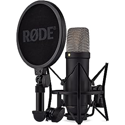Asia: Disruption in Radio Advertising As TBS Enters

Traffic broadcasting (tbs), a subsidiary of Seoul Metropolitan Government in South Korea, is expected to disrupt the radio advertising market. Although tbs FM, which is the main driver of tbs radio, has only sponsored public service and public service advertisements, it plans to sell commercial advertisements after the independence to finance the foundation. In addition to terrestrial public broadcasters who fear that the publicity of broadcasting will be threatened as the advertising market shrinks, small- and medium-sized radio broadcasters, which are likely to lose some of the pie in the radio advertising market, are also watching for the upheaval of the ad market after the TBS corporation.
The reason why tbs’ entry into the advertising market strains other broadcasters is that even though tbs FM does not receive commercial advertisements, its listening ratio is at the top based on the popularity of programs such as Kim U-jun’s News Factory. According to the results of the ‘Round Listening Rate in the Fourth Round of Metropolitan Area in 2019’ published by Korea Research on November 6, Kim U-jun’s News Factory was ranked 1st with a listening rate of 14.5%. The result is a record-breaking record, exceeding the 13.3% listening rate from previous surveys. In addition, TBS FM ranked second in the Seoul Metropolitan Radio Channel, with third and ranked 29th.
Therefore, the radio advertising market is expected to restructure once tbs finishes the foundation and starts selling commercial ads. As of the end of last year, the Korea Advertisement Promotion Agency (KOBACO) estimated that the terrestrial radio advertising market amounted to about 175 billion won. Among the commercials sold through KOBACO, MBC radio recorded the most at W66.5bn, followed by KBS Radio at W11bn, CBS Radio at W23.3bn, BBS Radio at W5.8bn, and W15.6bn. It is estimated that the amount of advertising sales for SBS Radio and local civilian radio, which advertises through SBS Media Lab, a separate advertising sales agency (Media Lab), is estimated at W53.2bn. Considering the sales forecast of 20 billion to 30 billion won after tbs entered the ad market, all radio broadcasters are likely to experience blue.
The analysis of a public broadcaster’s own analysis shows that the impact on MBC and KBS will be particularly high. If tbs eats up to 20% of the overall radio advertising market, MBC’s ad revenue is expected to exceed W10bn and KBS’s W2bn. This is because tbs is most likely to earn advertising revenue by incorporating them into media labs such as broadcasters. According to Article 5 of the Act on Broadcasting Advertising Sales Act (Media Lab Act), commercial advertising on radio broadcasting is only allowed to be advertised by Media Lab, which is responsible for advertising sales. SBS radio and local public groups are bundled into separate media labs, and comprehensive programming channels are also advertising campaigns through independent broadcasters. On the other hand, tbs is likely to be included in Cobaco, which has the largest proportion of ad sales, and broadcasters who sell ads through Cobaco are the first choice.
Tbs, which has been actively incorporating since December last year, has submitted an application for change permission to become an independent corporation to the Korea Communications Commission on October 31. Incorporation is a matter of pursuing the role of independent broadcasting, leaving the status of a subsidiary under Seoul, and solving the problems of political fairness and autonomy and financial resources.
So far, the overall situation has been progressing without any major obstacles to incorporation. In December 2018, the Ministry of Public Administration and Security deliberated on the establishment of local governments’ contributions and actors as well as the opinion that ‘the excessive dependence of financial resources on Seoul is necessary to prepare systematic measures to secure its own resources’ as it is a barrier to actual independence. Completed. In June, the Seoul city council also stipulated the tbs establishment and operation ordinances, and the paving stones for the incorporation are ready.
The remaining issue is whether to admit commercial advertising. As early as three months, early next year, it will be decided whether to advertise tbs. According to the data of the ‘tbs change permit review plan’ submitted by the Senate Kim Seong-su (Deputy Democratic Party) of the National Assembly’s National Institute of Science and Technology Information and Communication Committee, It will be promoted within days. ” On the other hand, the KCS believes that ‘financing resources’ means that commercial advertisements are allowed, so it is highly likely to allow commercial advertisements of tbs FM.
The incorporation of tbs as an independent corporation has been an alternative to the conservatives’ ongoing problem that the political bias of programs and channels has increased due to the siege of Seoul, but the inside of the broadcasting industry is complex. The annual budget of tbs is about 44 billion won, of which 36.5 billion won is from Seoul. The largest share of broadcasting resources depends on Seoul. Due to the inability to advertise commercially, only 6 billion won was imported. Logically, in order to get autonomous broadcasting away from the breath of Seoul, the corporation should be able to sell commercial advertisements.
However, existing public and small- and medium-sized radio broadcasters cannot be overlooked, but they also need a complex alternative to alleviate the impact of a sudden drop in advertisements and secure public interest. Kim Ki-man, president of KOBACO, said in a national parliamentary audit last October that “the market environment of public broadcasting and small and medium broadcasting is a” crisis of desperation “and” the emergency situation of the entire broadcaster is in the midst of financing.”
It is inevitable that the total size of the radio advertising market is shrinking due to changes in the advertising environment, but it is also pointed out that even though the sales of new types of advertisements such as indirect advertising and virtual advertising are gradually increasing, they are not evenly distributed among all radio stations. A local radio broadcaster also said, “If TBS is advertising commercially, terrestrial public broadcasting will be reduced, but only the small and medium-sized broadcasters are more seriously affected. “There is a need for measures, including rational property management, in the distribution of advertisements and support such as the ‘local broadcasting development fund’ coming out.”









